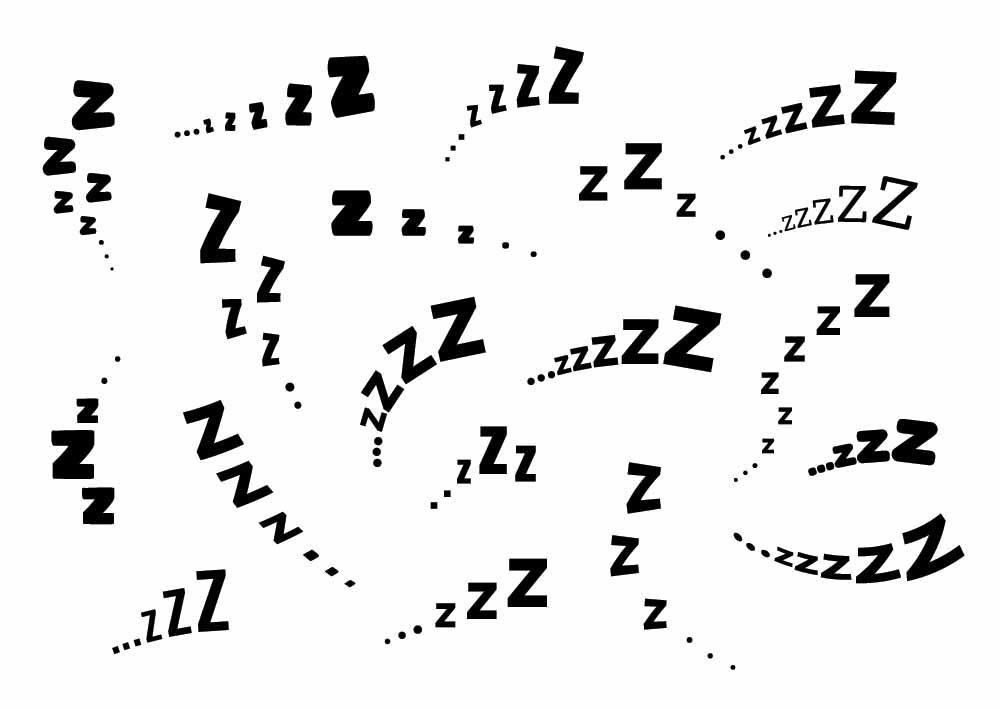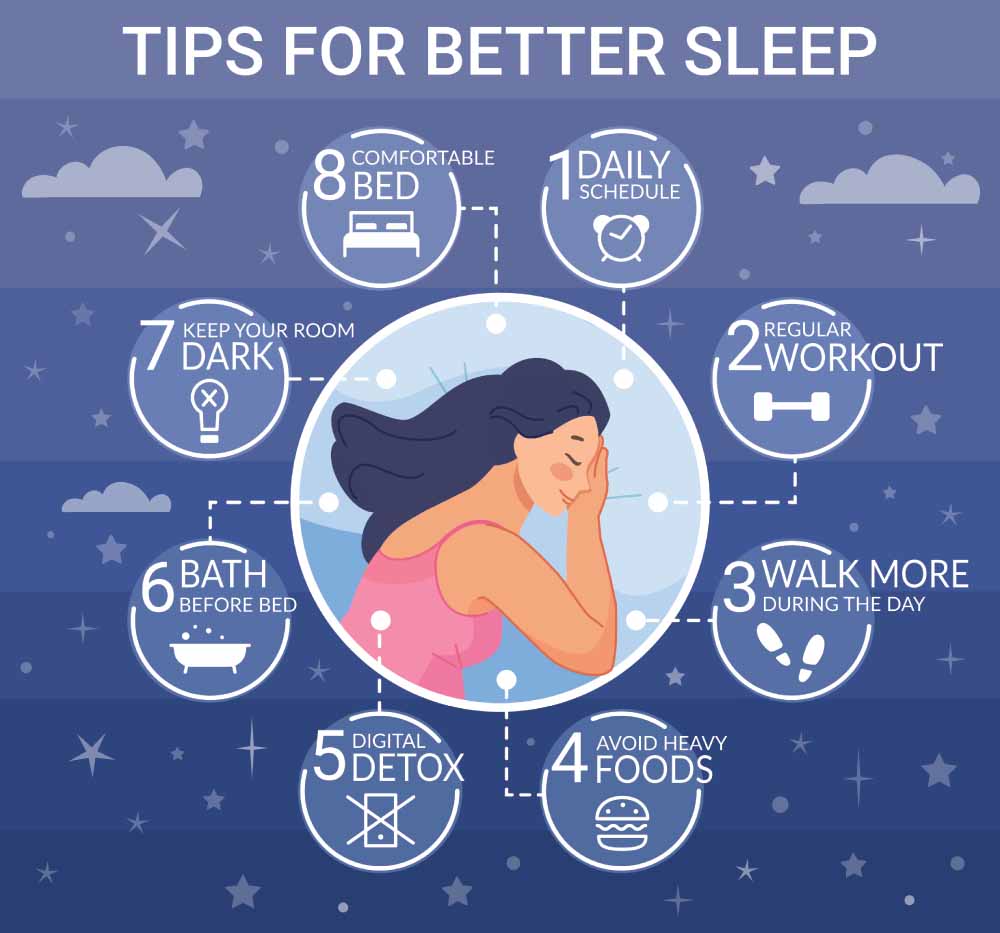Have you ever felt groggy, dull and irritated just because you couldn’t sleep well? Sleep plays a huge role in our day-to-day life. Our mental health and head to toe movement are all dependent on the quality of sleep we’ve had last.
Sleep needs can vary for different age groups and even from person to person. Experts generally recommend 7-8 hours of sound, proper sleep for adults.

Sleep supports healthy brain function, which in turn contributes to overall physical health. In teenagers and children especially, sleep is a vital factor for proper development and growth. Inadequate sleep creates a higher risk of chronic illness and several other health problems that can play out for a very long period.
Our body creates different hormones during different times of the day. This could be related to our sleep pattern or our circadian clocks. A hormone called cortisol enables alertness in the morning that helps us wake up bright and fresh. Various other hormones have different functionalities during the day. For example, during the night children’s glands release testosterone, estrogen, and progesterone that are made in pulses, and these pulses get bigger as puberty approaches.
The National Heart Lung and Blood Institute released an article that speaks about some of the repercussions of lack of proper sleep. These are as follows:
• Higher levels of the hormones that control hunger, including leptin and ghrelin, inside your body
• Decreased ability to respond to insulin
• Increased consumption of food, especially fatty, sweet, and salty foods
• Decreased physical activity
• Metabolic syndrome
All the above conditions lead to overall weight gain or obesity.

In addition, if sleep is ignored for the longest period, it can lead to additional mental problems like paranoia, psychosis, mania, hallucinations, anxiety and depression.
Proper sleep helps maintain cognitive skills such as attention, learning and memory, whereas poor sleep makes it very difficult to cope with the minutest of things. To perceive things accurately become extremely difficult.
Here are some core areas where sleep and mental health are linked:
1. Gives you more energy - It's a tried and tested fact that sound sleep enables a person to feel absolutely refreshed and recharged. It keeps the mind light and active to focus. Often, we hear others advising us to have a good night’s sleep before any important event or occasion so that one can deliver the best in any activity.
2. Improves your memory, attention and concentration - The brain is considered to work well when one is able to memorise things nicely, properly pay attention and actively concentrate on any given task. Someone who is in the habit of taking proper care of his/her sleep cycle will mostly be able to nail all these areas.
3. Makes one less likely to crave snacks that are less nutritious - As mentioned in online portal Headspace, lesser sleep is linked to unhealthy food cravings.
4. Improves emotional resilience - Sound sleep means a sound mind that helps one think better, take the right decisions and handle stressful or chaotic situations calmly.
An article by the National Library Of Medicine says, ‘A review of several hundred epidemiological studies concluded that nearly one-thirds of the general population experiences symptoms of insomnia (defined as difficulties falling asleep and/or staying asleep), between 4 per cent and 26 per cent experience excessive sleepiness, and between 2 per cent and 4 per cent experience obstructive sleep apnoea.’

After understanding the implications of insufficient sleep, it's imperative for an individual to work on their sleeping pattern and improve the same. This can be done through a few simple steps -
1. Maintain a consistent sleep schedule - Irrespective of whether it is a weekday or a weekend, try to maintain the same time of sleeping and waking up.
2. Set a bedtime - Set a time that’s early enough for you to have at least 7 hours of quality sleep.
3. Establish a bedtime routine - A relaxing bedtime routine will help you transition from day to night peacefully, and improve sleep hygiene.
4. Don’t force yourself to sleep - If you have trouble sleeping easily, do something that you enjoy until the point you are tired and ready to get to bed.
5. Create a healthy sleep environment - Avoid bright lights, loud noise and messy surroundings. Tune everything down to comfortable temperature, and also avoid being too close to electronics.
6. Avoid caffeine and alcohol - Cut out these stimulants a couple of hours before you get to bed. These drinks can completely disrupt your sleep cycle and keep you wide awake until the wee hours of the morning.